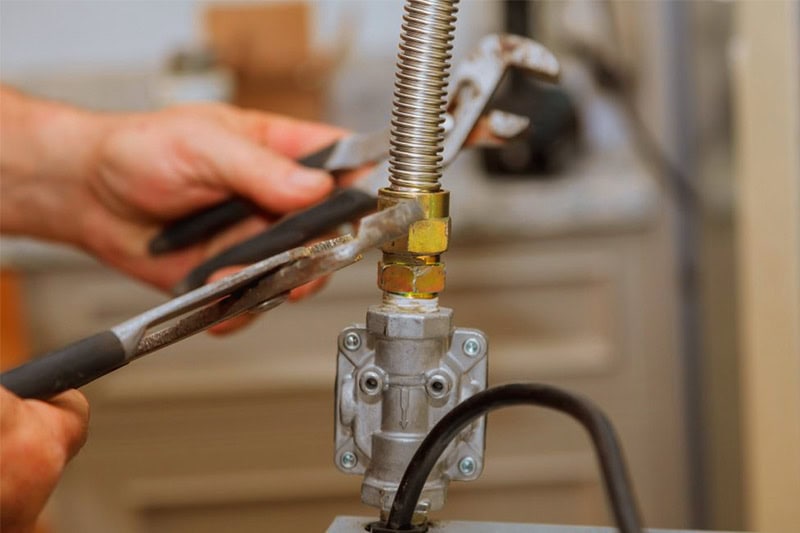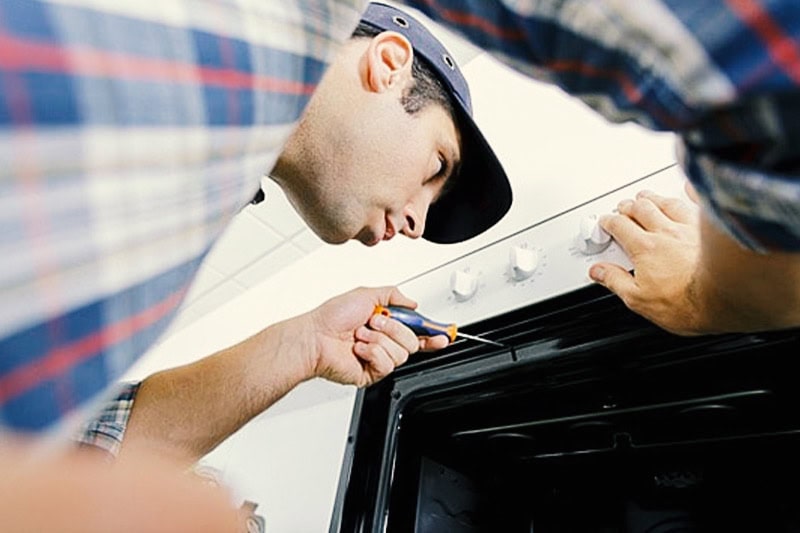How to Detect a Gas Leak at Home: Signs & Safety Tips

Gas leaks can pose a serious safety hazard in your home. Recognizing the signs of a gas leak and knowing what to do in such situations is crucial to protect yourself and your family. As the gas leak expert in Costa Mesa we’ll discuss the various signs of a gas leak, safety precautions, and steps to take if you check for gas leaks.
Common Signs of a Gas Leak
Strong Gas Odor: A Clear Warning Sign
A pungent, sulfurous odor is often the most noticeable and immediate check for gas leak. This odor is intentionally added to natural gas to make it easily detectable. Even a faint whiff of this smell should be taken seriously.
If you detect a gas leak, make yourself safe. Gas leaks can be dangerous and potentially explosive. Do not try to know the spot of the gas smell yourself, as this could increase the risk of fire. Once you’re safely outside, call your gas provider or emergency services. Provide them with your address and a brief description of the situation.
Hissing or Whistling Sounds: A Potential Indicator
Gas leaks can sometimes produce unusual hissing or whistling sounds. These sounds may be heard near gas appliances or pipes. If you hear these sounds, turn off the gas appliance. Listen carefully to learn if the sound persists even when the gas is turned off. For safety leave your home as soon as possible and contact your gas provider or emergency services.
Dying Plants: A Subtle Warning Sign
While not as immediate as a strong odor or hissing sounds, dying or struggling houseplants near gas appliances can be a subtle gas leak detection. Gas leaks can release carbon monoxide, which can be harmful to plants, even before it becomes noticeable to humans.
If you notice that your houseplants near gas appliances are wilting, turning yellow, or dying unexpectedly, it’s worth investigating further. This could be especially concerning if these symptoms appear without other apparent causes like overwatering or inadequate sunlight.
If you detect a gas leak, even based on a seemingly minor detail like dying plants, it’s important to evacuate your home immediately and contact your gas provider or emergency services.

White or Yellow Flames
Gas appliances, such as ovens and fireplaces, generally burn with a clear blue flame. If you see the gas flame turning white or yellow, it could be a sign that it is not hot enough. This is also a sign of a gas leak.
Incomplete combustion occurs when there is not enough oxygen for complete combustion. This problem leads to the release of harmful gasses including carbon monoxide. If you see unusual flame colors, leave your home immediately and contact your gas provider or emergency responders.
Health Symptoms: A Red Flag
Gas leaks can also cause health problems, especially if you’re exposed to high concentrations of gas. Common symptoms include:
- Headaches: A persistent or severe headache can be a sign of gas exposure.
- Nausea: Feeling nauseous or experiencing vomiting can also be a symptom of gas poisoning.
- Dizziness: Gas exposure can cause dizziness or lightheadedness.
If you experience these symptoms and detect a gas leak, do not hesitate to evacuate your home and seek medical attention. It’s important to take these symptoms seriously, as they can be indicative of a dangerous situation.
Safety Precautions if You Detect Gas Leak

- Evacuate Immediately: If you suspect a gas leak, leave the premises immediately and avoid using any electrical devices, including your phone.
- Don’t Use Open Flames: Avoid using matches, lighters, or any other open flame, as this could ignite a gas leak.
- Contact Emergency Services: Call your gas provider or emergency services immediately to report the gas leak.
- Stay Away from the Building: Once you’ve evacuated, stay away from the building until the gas leak has been repaired.
Steps to Take if You detect a Gas Leak
- Locate the Gas Shut-Off Valve: The gas shut-off valve is usually located near your gas meter, typically outside your home. It’s usually a red lever or wheel.
- Turn Off the Gas: If you can safely access the gas shut-off valve, turn it off. However, if you’re unsure or unable to do so, leave it alone and let the professionals handle it.
- Ventilate the Area: Open windows and doors to allow fresh air to circulate.
- Contact Your Gas Provider: Call your gas provider immediately to report the leak and schedule repairs.
- Stay Away Until Repairs Are Complete: Do not re-enter your home until the gas provider has confirmed that the leak is safe and repaired.
Preventing Gas Leaks
- Regular Inspections: Schedule regular inspections of your gas appliances and pipes to ensure they are in good working condition. Please try to contact gas leak experts, such as Parzival Plumbing, to prevent this situation from arising. We offer our services in Costa Messa and we are available 20*7 in your service.
- Proper Maintenance: Keep your gas appliances clean and well-maintained. Follow the manufacturer’s instructions for maintenance and cleaning.
- Avoid Overloading Circuits: Overloading electrical circuits can cause malfunctions that may lead to gas leaks.
- Inspect Pipes for Damage: Regularly check gas pipes for signs of damage, such as corrosion, cracks, or leaks.
- Be Cautious with DIY Repairs: Avoid attempting to repair gas leaks yourself, as this can be dangerous. Leave repairs to qualified professionals.
Conclusion
Recognizing the signs of a gas leak and knowing what to do in such situations is crucial for your safety and the safety of your family. By following the safety precautions outlined in this guide, you can protect yourself and your home from the potential dangers of gas leaks. Remember, if you detect a gas leak, it’s always better to err on the side of caution and contact emergency services immediately.
